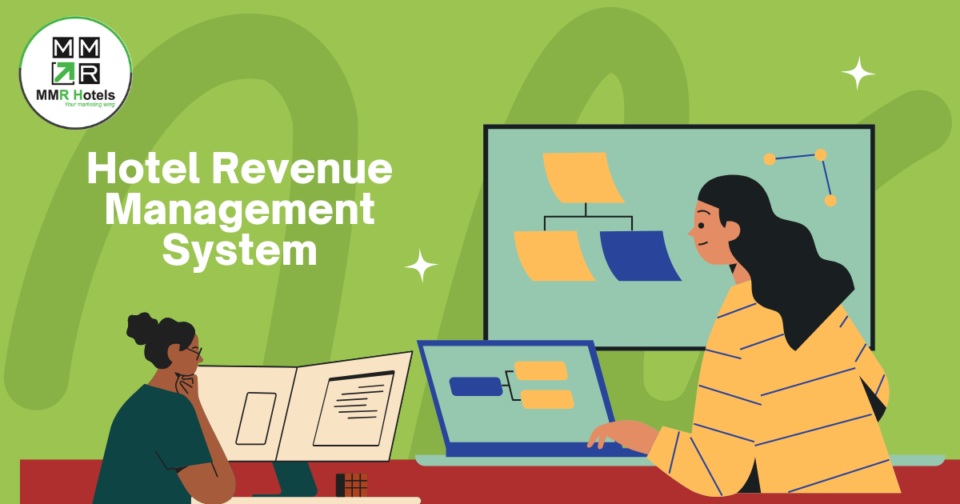A strong hotel revenue system (RMS) is essential for the success of the financial aspect. MMR Hotels focuses on offering unique approaches to revenue management for hotels, helping them increase their revenue with the help of technology, data, and knowledge. This article will brief you on hotel revenue management system along with MMR Hotel as the leading provider of software.
What is a Hotel Revenue Management System (RMS)?
The hotel revenue management system is a complex system that allows hoteliers to understand demand, predict future trends, and set the right price. It employs complex mathematical models and up-to-date information to change the rates of rooms in real-time and remain profitable at the same time as being competitive. Through the use of an RMS, hotels to forecast demand, control inventory and improve the guest booking process.
The most important indicators include Average Daily Rate (ADR), Revenue Per Available Room (RevPAR), and Gross Operating Profit Per Available Room (GOPPAR), which are the basis of revenue management. These metrics are defined as follows:
-
ADR: ADR stands for Average Daily Rate, which represents the average revenue earned per occupied room.
-
RevPAR: RevPAR is short for Revenue Per Available Room, which is calculated by dividing the total room revenue by the number of available rooms.
-
GOPPAR: GOPPAR stands for Gross Operating Profit Per Available Room, revealing the operational efficiency by dividing the gross operating profit by the number of available rooms.
Why is Revenue Management Essential?
Hotel revenue management system make sure that hotels do not miss out on demand patterns. MMR Hotels also underlines the need to forecast demand and control the supply of rooms and their rates. By implementing a robust RMS, hotels can:
-
Maximize Occupancy and Revenue: This means that the managers of the hotels can set the prices of the rooms in a way that they will be able to attract more customers during the low seasons and, at the same time, make more profits during the high seasons.
-
Improve Operational Efficiency: The use of automation tools reduces the chances of human errors, hence allowing the staff to focus on improving the guests’ experience and other aspects of the business.
-
Enhance Guest Experience: Personalization of the offers and handling of overbooking situations help in increasing the guest retention and the overall satisfaction of the guests.
MMR Hotels’ Approach to Revenue Management
MMR Hotels utilizes state-of-the-art tools and technologies tailored to the hospitality sector. Here’s how their system stands out:
-
Data-Driven Algorithms: Data-Driven Algorithms help businesses gain insights into their operations by using predictive analytics, machine learning, and historical data to enhance the pricing model and inventory accessibility.
-
Seamless Integration: Seamless integration allows for easy working as it integrates solutions with PMS (property management systems), booking engines, and distribution channels for data exchange and proper functioning.
-
Cloud-Based Technology: Cloud-based technology provides scalable and secure tools that are easily accessible from anywhere, ensuring data protection and flexibility in managing operations.
Specific Algorithms and Analytics Used in RMS
Modern RMS systems deploy a mix of statistical and machine-learning algorithms:
-
Dynamic Pricing Models: Dynamic Pricing Models adjust rates based on factors such as demand, competitor pricing, and local events. This strategy helps businesses to optimize their pricing strategies and stay competitive in the market.
-
Demand Forecasting Models: Demand Forecasting Models use time-series analysis to predict occupancy trends, helping businesses make informed decisions about their inventory management and resource allocation.
-
Behavioral Analytics: Behavioral Analytics provide insights into customer preferences, enabling businesses to create personalized upselling and cross-selling opportunities. By understanding customer behaviour, businesses can tailor their marketing strategies to better meet the needs and desires of their customers.
MMR Hotels points out the use of these advanced analytics to deliver accurate forecasts and optimal pricing strategies.
How MMR Hotels Enhances Revenue Management?
MMR Hotels offers a comprehensive suite of services that transform the revenue management process:
-
Channel Management: Channel management involves the coordination of pricing across various online travel agencies to maintain consistency and maximize revenue.
-
Booking Engine Integration: Booking engine integration streamlines the process of facilitating direct bookings, reducing reliance on online travel agencies.
-
Seasonal Strategy Development: Seasonal strategy development focuses on aligning pricing strategies with demand patterns to optimize revenue during peak seasons and minimize losses during off-peak periods.
The Future of Hotel Revenue Management System
As the hospitality sector evolves, RMS tools are incorporating more advanced technologies:
-
AI-Driven Automation: Artificial intelligence predicts trends with higher accuracy and minimizes manual intervention.
-
Mobile Accessibility: Cloud-based solutions with mobile access allow hoteliers to manage operations remotely.
-
Personalization Algorithms: Guest-centric personalization ensures better engagement and repeat bookings.
MMR Hotels continuously adapts its solutions to align with these trends, so their clients stay ahead in the competitive landscape.
Conclusion
The implementation of an advanced hotel revenue management system is no longer optional in today’s aggressive hospitality environment. With its data-driven approach and cutting-edge technology, MMR Hotels allows hotels to achieve their full revenue potential.
Choose MMR Hotels for your revenue management needs and experience the future of hospitality today.

